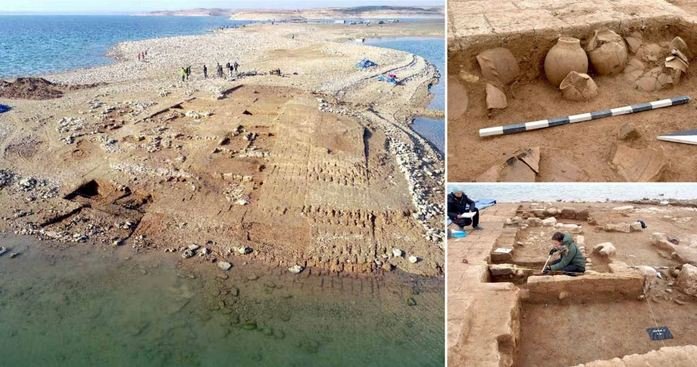[ad_1]
A 3,400-year-old palace has surfaced in the Kurdistan region of Iraq after months of drought and falling water levels.
Iraq has seen temperatures as high as 45 ° C, and residents have been forced to withdraw water from the Mosul reservoir for consumption and irrigation.
The published photos are believed to show the lost city of ‘Zakhiku’, which was once the center of the Mittani empire – exposed by the waters of the Tigris River.
A group of Kurdish and German archaeologists have begun digging and documenting the ruins before they are covered again by water.
Their quick reaction to the excavations led to the discovery of about 100 ancient mud tablets, which have ancient inscriptions and some even had their “envelopes”.
One of the researchers called the discovery a “miracle” because it had survived so long in the water.
Within a short time experts created a map of the complex believed to date from 1550 to 1350 BC
Dr Ivana Puljiz of the University of Freiburg, said: “This large building is of particular importance due to the large amounts of food placed in it, which were most likely brought from all over the region.”
Scholars believe the findings will shed light on the end of the Mittani era and the beginning of Assyrian rule in the region.
The city is already covered with water again, as reservoir levels have resumed rising.
top channel
[ad_2]
Source link















